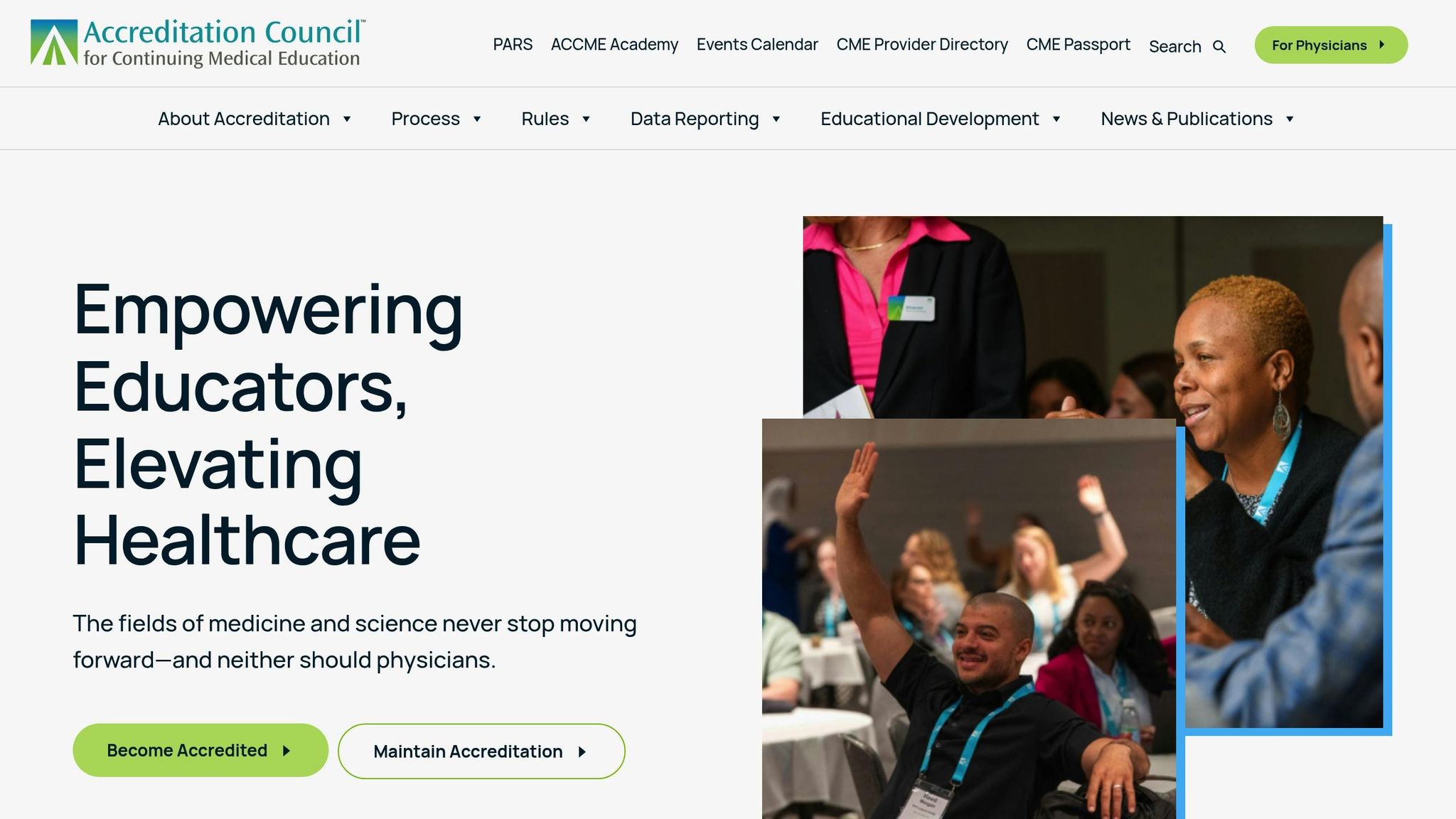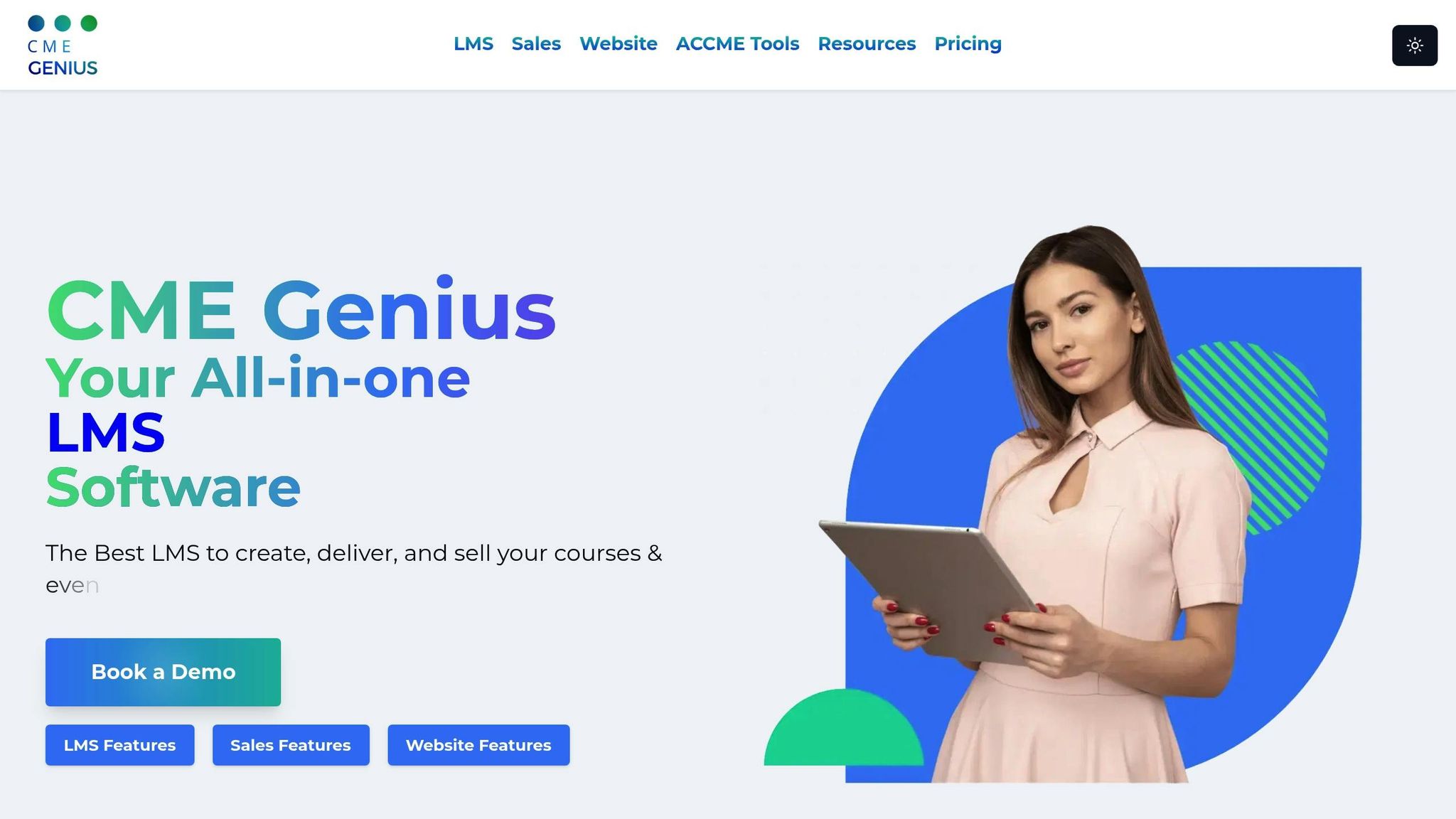
CME Activity Planning Timeline Basics
By Jason Cox MDCME Activity Planning Timeline Basics
Creating a CME activity takes time - typically 9-12 months. Why? Early planning ensures compliance with ACCME standards, better resource allocation, and higher-quality content. The following article discusses traditional educational activity planning and execution. Keep in mind it doesn’t have to take this long if you have an agile efficient team and tools with standardized guardrails and processes to keep you compliant.
Here’s how the process breaks down:
10–12 Months Before: Conduct a needs assessment to identify learning gaps.
9–10 Months Before: Form a planning committee and review conflicts of interest.
6–8 Months Before: Submit your CME application with all required documentation.
3–6 Months Before: Develop content, marketing materials, and registration systems.
1–3 Months After: Collect feedback, analyze outcomes, and prepare reports.
Using tools like CME Genius can simplify tasks like documentation, accreditation, and timeline management. Stay organized, meet deadlines, and deliver a great educational experience.
Planning Timeline Phases
Phase 1: Needs Assessment (10-12 Months)
Start by laying a strong foundation through a detailed needs assessment. This involves pinpointing practice gaps using surveys, data reviews, and stakeholder feedback. The insights gathered will guide the creation of clear learning objectives to address those gaps.
Key tasks for this phase include:
Identifying practice gaps through analysis
Defining measurable learning objectives
Drafting an initial activity outline
CME Genius offers tools that simplify gap analysis and learning objective creation while aligning with ACCME standards.
Phase 2: Committee Setup (9-10 Months)
During this phase, form a committee of experts and manage potential conflicts of interest. Focus on assembling a diverse team and establishing clear communication channels.
Key tasks include:
Selecting committee members with varied expertise
Conducting conflict of interest reviews
Assigning roles and responsibilities
Scheduling regular meetings
Creating communication guidelines
CME Genius provides tools to organize committees and handle conflict reviews efficiently.
Phase 3: Application Process (6-8 Months)
This phase is all about preparing and submitting your CME application. Gather the necessary documentation, select the right faculty, and ensure all requirements are met.
Key activities include:
Collecting required documentation
Choosing qualified faculty
Writing detailed activity descriptions
Submitting accreditation applications
Addressing feedback from reviewers
CME Genius simplifies this process with tools designed for accreditation documentation and submission.
Phase 4: Content Development (3-6 Months)
Work closely with faculty and reviewers to create engaging content. This phase focuses on preparing materials and setting up systems for a smooth participant experience.
Key tasks include:
Developing presentation materials
Creating assessment tools
Designing participant handouts
Preparing marketing materials
Setting up registration systems
CME Genius offers course creation tools and AI-driven quiz builders to streamline content development while ensuring compliance.
Phase 5: Post-Activity Tasks (1-3 Months After)
Wrap up by focusing on accreditation requirements and gathering insights for future improvements. Analyzing outcomes and collecting feedback are key here.
Key tasks include:
Gathering participant feedback
Analyzing learning outcomes
Preparing detailed activity reports
Submitting required documentation
Planning follow-up assessments
CME Genius's analytics dashboard and automated tools make tracking outcomes and reporting much easier.
Timeline Management Tips
Managing timelines effectively means using the right tools and ensuring clear communication.
Project Management Software
CME Genius offers a range of features tailored for planning CME activities:
Task Organization: Build detailed task lists with reminders and dependency tracking.
Document Management: Keep all CME-related files securely stored in the cloud.
Progress Tracking: Stay on top of completion rates and spot potential delays early.
Automated Workflows: Simplify routine tasks like scheduling and documentation.
The platform also integrates with tools like Zoom, Stripe, and Salesforce, making it easier to manage different aspects of CME activities. However, tools alone aren't enough - good communication is key to staying on track.
Team Communication
In addition to using specialized software, maintaining clear communication within your team is essential. Here are some strategies to ensure everyone stays coordinated:
Centralized Communication Hub
Having a single platform for all project-related conversations can make a huge difference. CME Genius includes built-in communication tools that allow you to:
Organize discussions by topic.
Document important decisions and their context.
Maintain audit trails for accreditation purposes.
Automatically share updates with stakeholders.
Structured Updates
Consistent updates make it easier to track progress and address issues. Here’s a simple update framework:
Update Component | Purpose | Frequency |
|---|---|---|
Status Reports | Monitor milestone progress | Weekly |
Risk Assessments | Identify possible delays | Bi-weekly |
Resource Allocation | Check team capacity | Monthly |
Compliance Checks | Ensure alignment with ACCME | Ongoing |
CME Genius’s analytics dashboard provides real-time project insights, helping teams stay on schedule while meeting ACCME compliance requirements. Automated reports also keep stakeholders informed without adding extra work.
Meeting ACCME Requirements

Staying compliant with ACCME standards requires accurate documentation and meeting deadlines consistently.
ACCME Standards Checklist
Key areas of compliance include:
Disclosure management: Handling financial relationships and resolving conflicts of interest.
Content validation: Using evidence-based material with proper clinical references.
Commercial support: Keeping grant records and written agreements in order.
Educational design: Setting clear learning objectives and tracking outcomes.
Documentation: Maintaining complete records of all activities.
CME Genius simplifies this process with automated accreditation tools and ACCME data transfer capabilities [1]. By following these guidelines, you can ensure all requirements are met within the required timelines.
Application Deadlines
Timely submission of application materials is crucial for maintaining your accreditation. Start by preparing preliminary activity descriptions and faculty disclosures for the initial review. Make sure content validation is completed before launching your activity.
CME Genius helps by tracking deadlines and sending reminders, reducing the risk of delays. Along with staying on schedule, it’s essential to organize all critical materials as outlined below.
Documentation Requirements
Key records to keep include:
Meeting minutes from activity planning
Needs assessment data
Marketing materials
Evaluation tools
Methods for measuring outcomes
CME Genius organizes these records automatically, making submissions much easier.
Conclusion
Main Points Review
Effective CME planning requires careful timeline management and strict adherence to guidelines. From the initial needs assessment to post-activity tasks, each stage plays a crucial role in ensuring a program runs smoothly and meets ACCME standards. A lead time of 10 to 12 months is typically needed to handle documentation, form committees, and develop content effectively.
Key records to maintain include needs assessment data, committee meeting minutes, content validation documents, faculty disclosures, and evaluation tools.
CME Genius Platform Features

CME Genius simplifies these processes with tools designed to make planning and compliance easier:
Automated Documentation: Effortlessly transfers activity data to accrediting bodies like ACCME, ARDMS, and CCI.
Timeline Management: Tracks important deadlines and sends automated reminders to keep everything on schedule.
Content Development: Offers a course builder with built-in assessment tools for creating engaging educational content.
Compliance Tracking: Provides integrated systems to manage disclosures and monitor accreditation standards in real-time.
Set your team up for success today, BOOK A DEMO, with the CMEGenius team. Make sure to mention the keyword “TIMELINE” and get 1 month of software service free.
